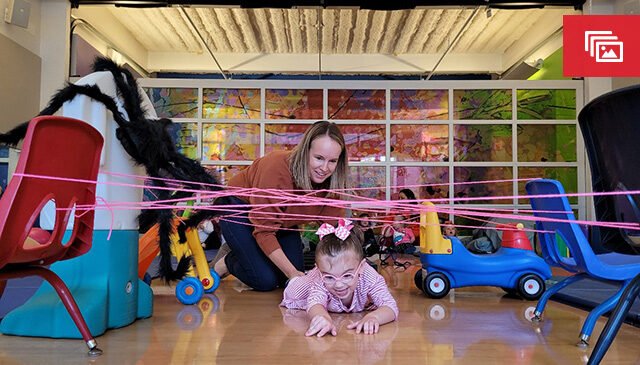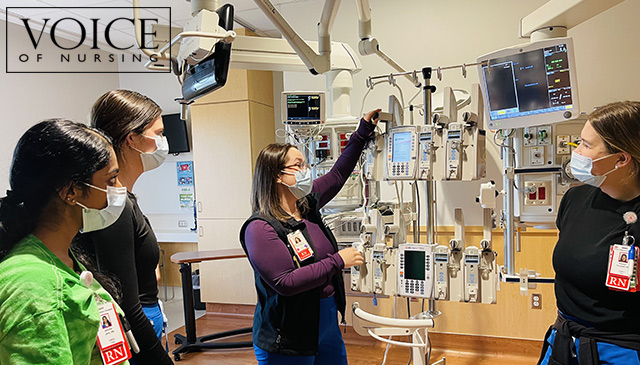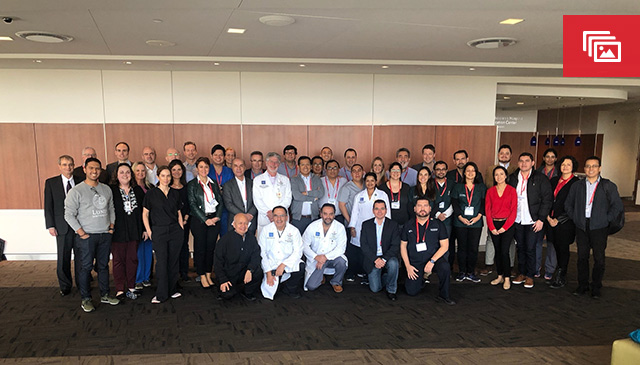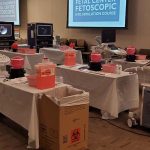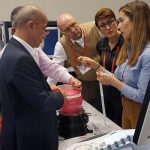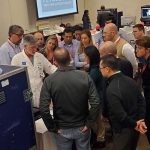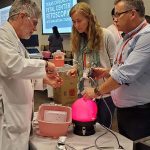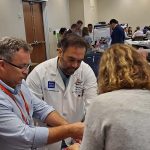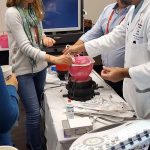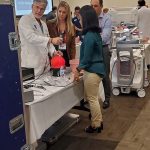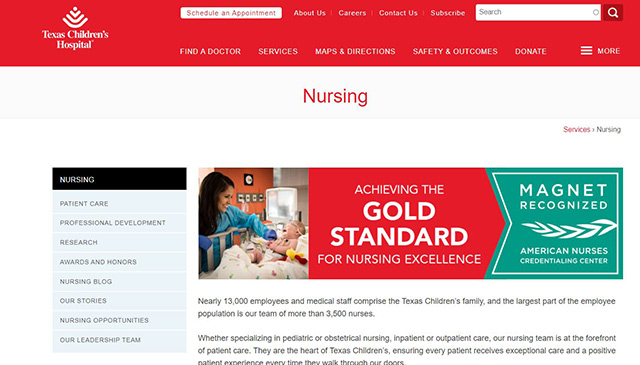August 17, 2020
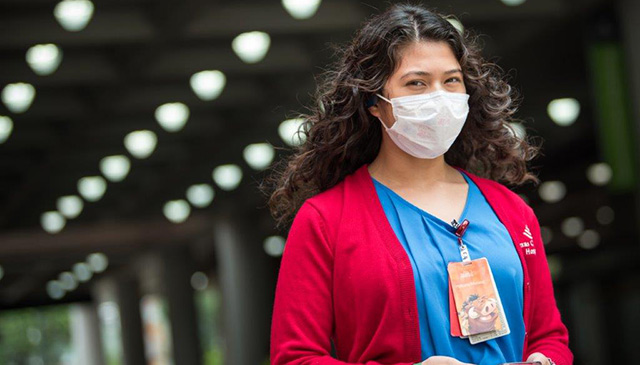
As children across Texas head back to school this month and next, Texas Children’s is preparing for a potential spike in COVID-19 cases. Although it is unclear what will happen when kids return to class, there is a chance that more people will contract COVID-19 due to increased exposure to the virus.
Denise Tanner-Brown, assistant vice president of Community and Ambulatory Nursing, said she is cautiously optimistic considering many schools are starting back virtually, but that no one knows what the next step might be and how that will affect the situation.
“We are standing ready for a second wave of cases and are not letting down our guard,” Tanner-Brown said. “As patient volumes decrease, we have a deactivation strategy where we can temporarily close down units. But, we also have an activation strategy in place where we can turn it back on really quickly should the situation change.”
Critical Care Director of Nursing Shannon Zerber said one of the things Texas Children’s has done well throughout the pandemic that’s reduced the stress of potential surges is adequate planning for space and staff.
A team of experts from across the organization has a tri-campus multitier plan that lays out multiple levels of response. The plan starts with sending patients to the Special Isolation Unit at Texas Children’s Hospital West Campus. Additional beds dedicated to COVID-19 patients are designated at Texas Children’s Hospital in the Medical Center Main Campus, including 13 acute care beds, and six additional ICU beds.
“As our COVID-19 volumes change at Texas Children’s, in Houston and the region, we adapt and flex to demand,” Zerber said. “There is a patient placement group that meets routinely to look at the latest data, so we are ahead of things, not behind. We are anticipating what will happen next.” As a result, Zerber said “everyone is prepared for a spike when school goes back, especially face to face. We all hope it won’t happen but we are ready if it does.”
Handling a surge
Dr. Amy Arrington, medical director of the SIU, said the biggest surge Texas Children’s has seen so far was at the end of June and the beginning of July. During that time, all 18 beds in the dedicated biocontainment unit were full and patients were also being cared for at the Medical Center campus.
Since then, the number of COVID-19 patients has dropped, but there has been an increase in the number of patients with multi-system inflammatory syndrome (MIS-C), a delayed inflammatory response to COVID-19 that typically presents four to six weeks after exposure. The syndrome is typically seen in children and teenagers and has varying effects on vital organs, including the heart. Arrington said although the condition is rare, clinicians across the nation are seeing an uptick in cases and that this trend could continue as more children head back to school and are potentially exposed to and contract COVID-19.
Caring for patients with MIS-C takes a tremendous amount of resources and expertise as many patients require stays in the intensive care unit, some of whom need specialized treatment such as extracorporeal membrane oxygenation (ECMO), a treatment that uses a pump to circulate blood through an artificial lung back into the bloodstream.
Texas Children’s has the resources and the expertise to care for these patients. We have intensive care specialists, cardiologists, surgeons, and specialists in rheumatology, infectious diseases and immunology investigating and treating the children as aggressively as needed to ensure they have the best possible outcome.
Chief of Critical Care Dr. Lara Shekerdemian, who has been directly involved in the organization of the intensive care of the 30 plus MIS-C cases at Texas Children’s throughout the pandemic, said Texas Children’s has the capacity to handle a surge of these patients even if it means using areas that aren’t currently being used. Although she said it is unlikely we will see an exponential growth in the number of cases of MIS-C, Shekerdemian emphasized that the capacity is there to care for all those who need the specialized care Texas Children’s can provide.
Arrington agreed and said “So far, space and staffing have never been an issue due to adequate planning and dedicated staff willing to show up for countless extra shifts, work as a unified team and generally go above and beyond. But, we must remain vigilant in our prevention and safety measures.”
Dr. Judith Campbell, medical director of Infection Control and Prevention, added that clinicians at Texas Children’s and other medical institutions from across the world are in a much better position to care for COVID-19 and MIS-C patients than they were in March when the pandemic began.
“We have good evidence now about how to care for patients safely,” Campbell said. “We also have a better supply of personal protective equipment, which makes clinicians and staff feel safer when they are caring for a positive patient.”
Staying on top of the latest research, looking at where we can do better and remaining steadfast in our dedication to our safety measures and protocols, however, are key to our continued success, Campbell said, adding that there is no room to lessen our determination in this pandemic.
Staying safe
Texas Children’s remains committed to providing the safest environment for our patients, families and employees. Since the beginning of the pandemic, we have done an excellent job at keeping people safe while continuing to be there for our patients and deliver top notch care.
Three safety measures that have been implemented across our system and that work very well revolve around screening, social distancing and wearing the proper personal protective equipment. We are constantly adapting and improving these efforts as the situation progresses and changes, but believe we have established a good foundational practice that will be part of our organization for some time to come.
As a reminder, everyone who walks into one of our facilities is stopped and screened for symptoms of COVID-19. Patients, family members and employees alike must fill out a questionnaire about any current symptoms they might have and any recent trips they might have taken. The screening process also includes a temperature check. Months ago, we invested in thermal imaging cameras at our three hospitals to expedite the process and to make it safer for our employees who are administering the screenings.
When on our campus or in any of our facilities, we ask patients, family members and even our own employees to please keep a safe distance of approximately 6 feet from others whenever and wherever possible, including waiting in line and riding in our elevators. We have placed signs and stickers across the system to help keep social distancing top of mind.
Wearing a mask is a must if you want to visit one of our facilities. Patients, family members, visitors and employees are issued a hospital-grade mask after being screened at one of our screening stations. Providers working in certain areas of our system wear additional PPE such as an N-95 mask, a procedure mask, goggles and/or an isolation gown depending on their risk level.
We also have instituted visitor restrictions, video and drive-through visits, precheck-in and online appointment and payment via MyChart, and curbside pharmacy pickup to mitigate any potential exposure to COVID-19 and to alleviate people’s worries about coming to one of our facilities for care.
We have robust testing capabilities and the nation’s largest pediatric primary care network in the nation standing on the front lines of this pandemic triaging patients who might have the virus and helping care for those who do. Texas Children’s Pediatrics is also helping administer COVID-19 tests at our testing sites across the organization and they are continuing to administer much-needed wellness visits and routine vaccines, including the flu vaccine, which will be more than ever for people to receive.
“We have been thoughtful and careful in our planning so that we can turn on a dime if we need to,” said Texas Children’s Pediatrics President Kay Tittle. “Throughout this pandemic, we have figured out how to be more flexible to meet the needs of our families. This will continue to be key in order for us to stay the course and to face whatever comes next.”
Shekerdemian said testing will be extremely important when school opens in order to slow the spread of the virus. It is imperative, she said, that people are honest with themselves and others when they don’t feel well.
“Don’t brush things aside,” Shekerdemian said. “If you (or your family member) don’t feel well, then call your physician and if necessary, isolate yourself and get a test.”
Campbell agreed and said the fall will definitely present an interesting chapter in the story of COVID-19 as it overlays other virial infections that occur commonly in the fall and winter months.
